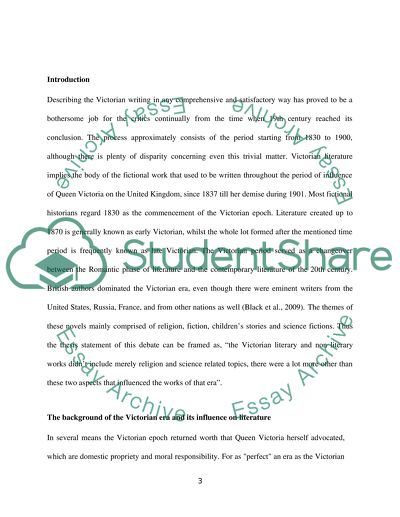Cite this document
(“Victorian literature Essay Example | Topics and Well Written Essays - 3750 words”, n.d.)
Retrieved from https://studentshare.org/literature/1498853-victorian-literature
Retrieved from https://studentshare.org/literature/1498853-victorian-literature
(Victorian Literature Essay Example | Topics and Well Written Essays - 3750 Words)
https://studentshare.org/literature/1498853-victorian-literature.
https://studentshare.org/literature/1498853-victorian-literature.
“Victorian Literature Essay Example | Topics and Well Written Essays - 3750 Words”, n.d. https://studentshare.org/literature/1498853-victorian-literature.


